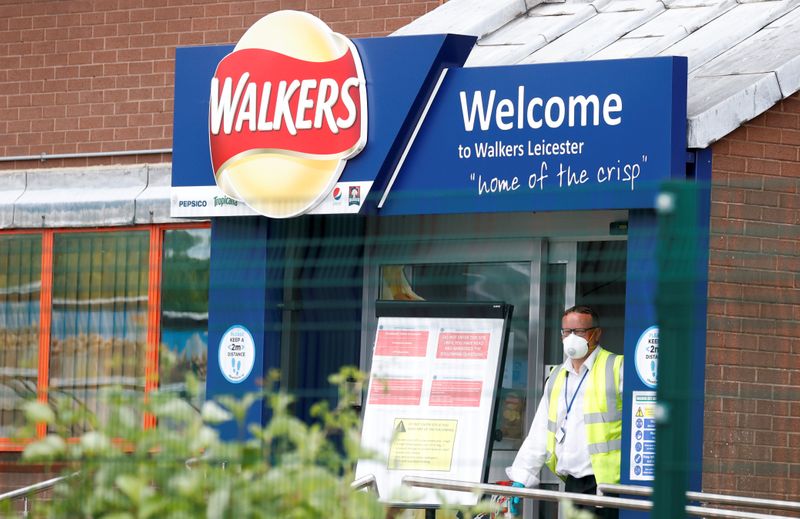LONDON (Reuters) - Fewer shops in Britain have shortages of potato crisps this week than the week before, official figures showed on Thursday, in a sign that supply problems for the popular snack food are easing.
Some 24% of food shops surveyed by Kantar Public for the Office for National Statistics had no or low stocks of multi-packs of crisps between Nov. 19 and Nov. 22, down from 30% the week before.
Britain's biggest crisp producer Walkers, part of PepsiCo (NASDAQ:PEP), had to scale back production at the start of the month after problems with an IT systems upgrade, which it warned could take weeks to fix.
Supply chain problems have been common in Britain and elsewhere as businesses adjust to shifts in consumer demand and the availability of workers following the COVID-19 pandemic - and, in Britain's case, Brexit.
The ONS said 14% of businesses it surveyed reported labour shortages in late November, similar to the month before. This rises to 38% in the accommodation and food services sectors, which shed many staff during the pandemic and often relied heavily on European Union workers.
The Bank of England is looking closely at the job market for signs of pay pressures - or, conversely, higher unemployment after the end of furlough support on Oct. 1 - as it considers whether to raise interest rates on Dec. 16.

Earlier official data showed a record number 1.172 million job vacancies in the three months to the end of October.
Thursday's data showed the volume of online job adverts was 44% above its pre-pandemic level - the same as the week before - while consumer spending on credit and debit cards was 3% higher than before the pandemic, on a non-seasonally adjusted basis.